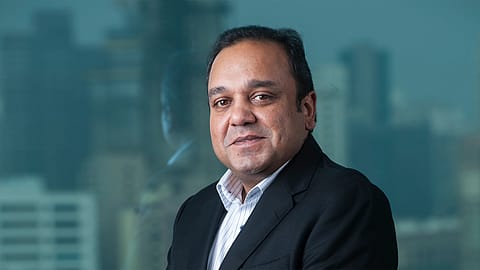Why investors want Punit Goenka out of Zee
Industry observers hardly find the move surprising. Sources say former Zee chairman Subhash Chandra’s micro-management of ZEE from outside angered the investors.

Founders always find it difficult to let go. Though many of them do talk about handing over the reign of their business to a professional management, they seldom walk the talk. Media baron and former Zee Entertainment chairman, Subhash Chandra, is among many Indian promoters who hasn’t been able to let go. Days after selling a 15.5% stake in November 2019 to a bunch of institutional investors in a bid to repay his ₹11,000 crore debt, Chandra announced his exit as Chairman of the entertainment conglomerate which he set up in 1992. His son Punit Goenka stayed put as MD though. Barely two years later, Punit stares at an ouster. The company’s largest shareholder, U.S.-based-hedge fund, Invesco Oppenheimer, which owns a 18.74% stake in the entertainment network has sought to remove Punit—as well as two of the company’s long serving independent directors, Ashok Kurien and Manish Chokhani. The latter two resigned from the ZEEL board late Monday evening. Industry observers hardly find it surprising, as the exit of the Goenka family which owns just 3.99% of ZEEL was just a matter of time. Sources say Chandra’s continued micro-management of ZEE from outside angered the investors.
"There seems to have been a fall-out between Chandra and Invesco Oppenheimer and since the former is not a part of the board, the axe has fallen on Punit,” says Arun Kejriwal, Founder, Kejriwal Research & Investment Services.
A former ZEEL employee on condition of anonymity claims that Chandra was remote managing the business. “Punit is a great team leader, but I am not sure how much of a role he had in decision-making. The company has been at the centre of governance issues, which the investors were uncomfortable with.” When Goenkas’ unpaid debt issue came out in the open in January 2019, Zee’s stock price which was in the region of ₹400 almost halved and has never really picked up. “Governance issues and lack of transparency have always pulled down the valuation of ZEE, and it got further accentuated when the debt crisis became public. The investors had always wanted the family to exit, but they somehow managed to hold on,” adds the former ZEE employee.
A senior market analyst says that performance may have also been a reason for the demand for Punit’s exit. Though the network in Q1 FY22 reported a 604.1% increase in its standalone profit of Rs 213.8 crore, and a revenue growth of 35.3% as compared to Q1 FY21, it has not fared well in the TV ratings race. Its flagship channel, ZEE TV, which contributes a large chunk of revenue, has been lagging behind for a while. It has been at No. 9, behind the likes of Star Plus, Colors and Sony Sab. More importantly, the OTT platform, ZEE5, where a lot of investment has gone in, is way behind in the race compared to Disney+Hostar and Amazon Prime Video. “The Goenkas have been too dependent on their television fortunes. Chandra would have promised a huge turnaround of the business on the back of digital which didn’t happen,“ says the analyst.
Chandra’s DTH venture, Dish TV, spearheaded by younger brother, Jawahar Goyal, faces an identical situation. Last week, its biggest lender Yes Bank demanded the removal of top management and independent directors, alleging that the board has not been meeting the corporate governance norms.
Ever since the proposed ouster of Punit Goenka has come out in the open, the ZEEL stock price has shot up by over 40%, while stock price of the loss-making Dish TV witnessed a 9.5%F jump. “Once Punit is out and a professional management is put in place, investors will lap up ZEE,” says Kejriwal of Kejriwal Research and Investment Services. After all, a well-run business with high standards of corporate governance is what the street is looking out for.